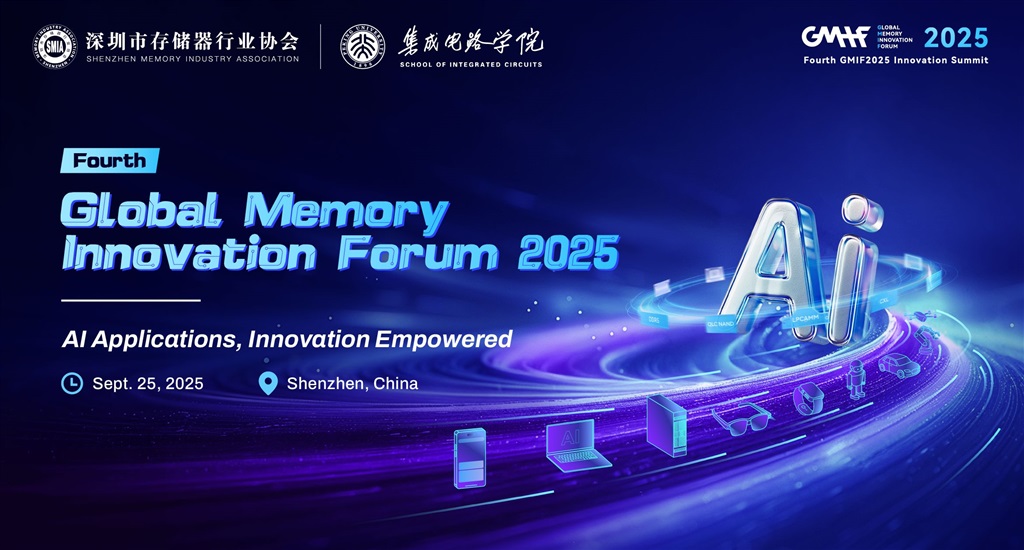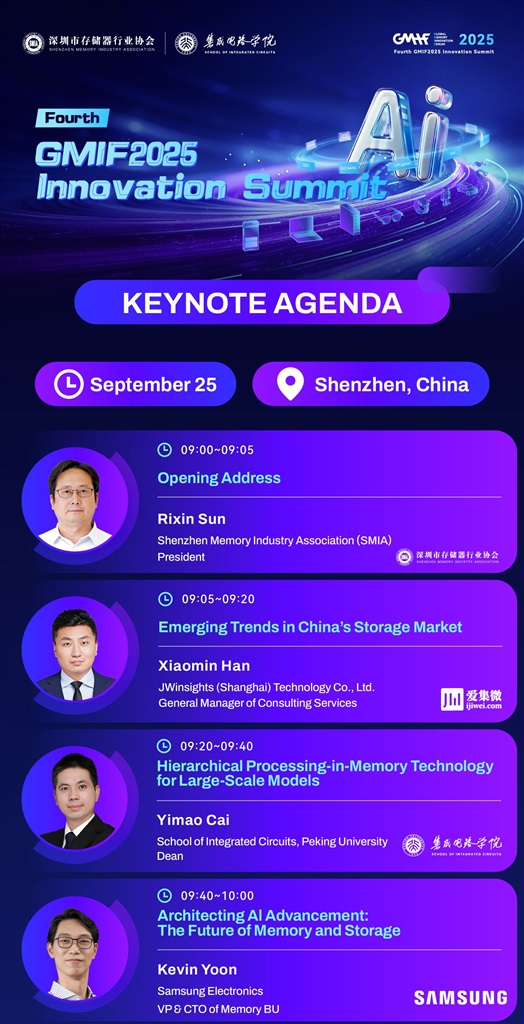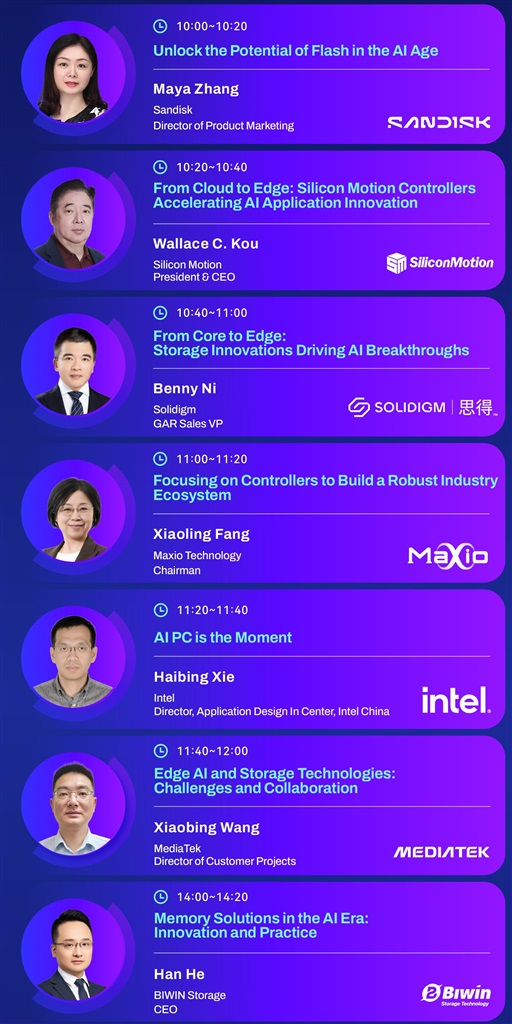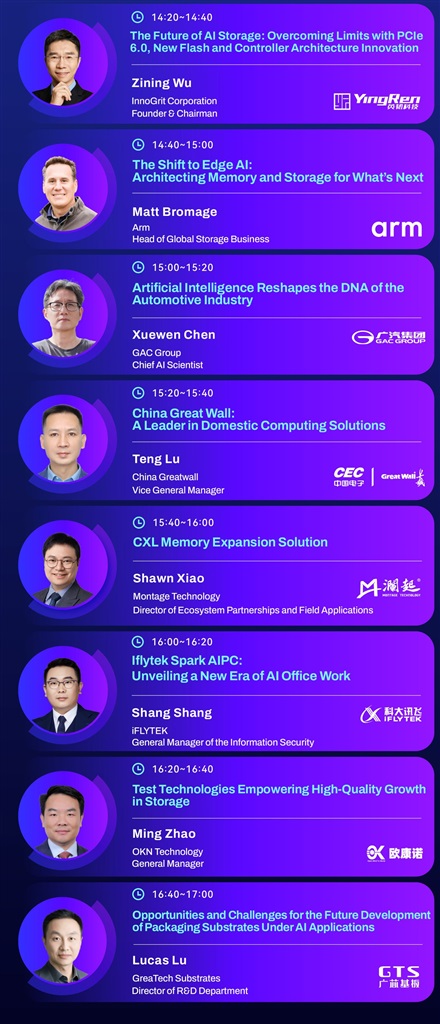The Fourth GMIF2025 Innovation Summit (Global Memory Innovation Forum), co-hosted by Shenzhen Memory Industry Association and School of Integrated Circuits at Peking University, is scheduled to be held on September 25, 2025 in Renaissance Shenzhen Bay Hotel. GMIF2025, themed "AI Applications, Innovation Empowered", will bring together leading enterprises, technology experts, and industry leaders across the global memory industry chain to explore the evolution of storage technologies and emerging opportunities in the AI era.

The Fourth GMIF2025 Innovation Summit is scheduled to be held on September 25, 2025. Credit:GMIF
The summit will feature executives and experts from School of Integrated Circuits at Peking University, Samsung Semiconductor, Sandisk, Solidigm, Silicon Motion, Maxio Technology, Intel, MediaTek, BIWIN Storage, InnoGrit, Arm, China Greatwall, Montage Technology, iFlytek, OKN Technology, GreaTech Substrates, and more than 19 other top global companies and universities. The keynotes will cover topics ranging from storage and memory technology roadmaps and market strategies to AI application practices and ecosystem collaboration, empowering innovation across AI scenarios from cloud to edge.

GMIF2025 Innovation Summit Keynote Agenda - Part 1. Credit:GMIF

GMIF2025 Innovation Summit Keynote Agenda - Part 2. Credit:GMIF

GMIF2025 Innovation Summit Keynote Agenda - Part 3. Credit:GMIF
In the exhibition zone, over 27 exhibitors will present more than 200 innovations, spanning the entire storage ecosystem-including leading IDMs, controller vendors, solution providers, packaging and testing companies, platform providers, and AI terminal enterprises. Attendees will experience immersive interactions, gain first-hand insights into the latest industry trends, and witness the evolving global storage ecosystem landscape.
Register now by clicking the link to secure your GMIF2025 pass and join global storage industry leaders in shaping the future of AI-driven innovation!
For more information about GMIF, please visit.
Article edited by Joseph Tsai



